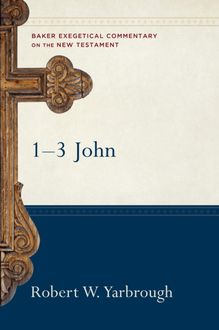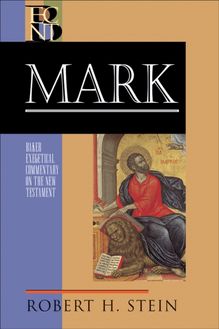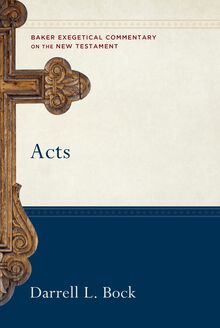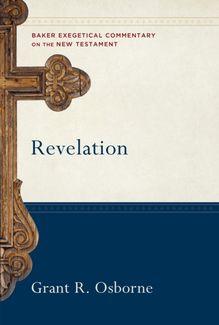-
 Univers
Univers
-
 Ebooks
Ebooks
-
 Livres audio
Livres audio
-
 Presse
Presse
-
 Podcasts
Podcasts
-
 BD
BD
-
 Documents
Documents
-
- Cours
- Révisions
- Ressources pédagogiques
- Sciences de l’éducation
- Manuels scolaires
- Langues
- Travaux de classe
- Annales de BEP
- Etudes supérieures
- Maternelle et primaire
- Fiches de lecture
- Orientation scolaire
- Méthodologie
- Corrigés de devoir
- Annales d’examens et concours
- Annales du bac
- Annales du brevet
- Rapports de stage
La lecture à portée de main
Vous pourrez modifier la taille du texte de cet ouvrage
Découvre YouScribe en t'inscrivant gratuitement
Je m'inscrisMatthew (Baker Exegetical Commentary on the New Testament) , livre ebook
Découvre YouScribe en t'inscrivant gratuitement
Je m'inscrisEn savoir plus
Vous pourrez modifier la taille du texte de cet ouvrage
En savoir plus

Description
Informations
| Publié par | Baker Publishing Group |
| Date de parution | 15 avril 2008 |
| Nombre de lectures | 0 |
| EAN13 | 9781441201188 |
| Langue | English |
| Poids de l'ouvrage | 2 Mo |
Informations légales : prix de location à la page 0,1728€. Cette information est donnée uniquement à titre indicatif conformément à la législation en vigueur.
Extrait
Baker Exegetical Commentary on the New Testament
ROBERT W. YARBROUGH AND ROBERT H. STEIN, EDITORS
Volumes now available
Matthew David L. Turner
Mark Robert H. Stein
Luke Darrell L. Bock
John Andreas J. Köstenberger
Acts Darrell L. Bock
Romans Thomas R. Schreiner
1 Corinthians David E. Garland
2 Corinthians George H. Guthrie
Galatians Douglas J. Moo
Ephesians Frank Thielman
Philippians Moisés Silva
1–2 Thessalonians Jeffrey A. D. Weima
James Dan G. McCartney
1 Peter Karen H. Jobes
1–3 John Robert W. Yarbrough
Jude and 2 Peter Gene L. Green
Revelation Grant R. Osborne
© 2008 by David L. Turner
Published by Baker Academic a division of Baker Publishing Group P.O. Box 6287, Grand Rapids, MI 49516-6287 www.bakeracademic.com
Ebook edition created 2014
Ebook corrections 02.03.2017
All rights reserved. No part of this publication may be reproduced, stored in a retrieval system, or transmitted in any form or by any means—for example, electronic, photocopy, recording—without the prior written permission of the publisher. The only exception is brief quotations in printed reviews.
Library of Congress Cataloging-in-Publication Data is on file at the Library of Congress, Washington, DC.
ISBN 978-1-4412-0118-8
To Beverly
Contents
Cover
Series Page
Title
Copyright Page
Dedication
Series Preface
Author’s Preface
Abbreviations
Transliteration
Map
Introduction to Matthew
I. Prologue/Introduction: Origin of Jesus the Messiah (1:1–2:23)
A. Title and Genealogy of Jesus the Messiah (1:1–17)
B. Birth of Jesus the Messiah (1:18–25)
C. Visit of the Magi (2:1–12)
D. Escape to Egypt (2:13–15)
E. Massacre at Bethlehem (2:16–18)
F. Return to Nazareth (2:19–23)
II. Early Days of Kingdom Word and Deed (3:1–7:29)
A. Narrative 1: John and Jesus and the Kingdom of God (3:1–4:25)
B. Discourse 1: Sermon on the Mount (5:1–7:29)
III. Galilean Ministry Continues (8:1–11:1)
A. Narrative 2: Three Cycles of Miracles and Discipleship (8:1–10:4)
B. Discourse 2: Mission and Suffering (10:5–11:1)
IV. Growing Opposition to the Kingdom of Heaven (11:2–13:52)
A. Narrative 3: Three Cycles of Unbelief and Belief (11:2–12:50)
B. Discourse 3: Parables of the Kingdom of Heaven (13:1–52)
V. Opposition to the Kingdom Continues (13:53–19:2)
A. Narrative 4: Various Responses to the Son of God (13:53–17:27)
B. Discourse 4: Values and Relationships in the Kingdom Community (18:1–19:2)
VI. Opposition Comes to a Head in Judea (19:3–26:2)
A. Narrative 5: Ministry in Judea (19:3–23:39)
B. Discourse 5: Judgment of Jerusalem and the Coming of Christ (24:1–26:2)
VII. Epilogue/Conclusion: Passion, Resurrection, and Commission (26:3–28:20)
A. Preliminary Events and Preparation of the Disciples (26:3–46)
B. Arrest and Trial (26:47–27:26)
C. Crucifixion (27:27–56)
D. Burial of Jesus (27:57–66)
E. Resurrection of Jesus (28:1–15)
F. Commission by the Risen Lord (28:16–20)
Works Cited
Index of Subjects
Index of Authors
Index of Greek Words
Index of Scripture and Other Ancient Writings
Notes
About the Author
Back Cover
Series Preface
The chief concern of the Baker Exegetical Commentary on the New Testament (BECNT) is to provide, within the framework of informed evangelical thought, commentaries that blend scholarly depth with readability, exegetical detail with sensitivity to the whole, and attention to critical problems with theological awareness. We hope thereby to attract the interest of a fairly wide audience, from the scholar who is looking for a thoughtful and independent examination of the text to the motivated lay Christian who craves a solid but accessible exposition.
Nevertheless, a major purpose is to address the needs of pastors and others involved in the preaching and exposition of the Scriptures as the uniquely inspired Word of God. This consideration directly affects the parameters of the series. For example, serious biblical expositors cannot afford to depend on a superficial treatment that avoids the difficult questions, but neither are they interested in encyclopedic commentaries that seek to cover every conceivable issue that may arise. Our aim, therefore, is to focus on those problems that have a direct bearing on the meaning of the text (although selected technical details are treated in the additional notes).
Similarly, a special effort is made to avoid treating exegetical questions for their own sake, that is, in relative isolation from the thrust of the argument as a whole. This effort may involve (at the discretion of the individual contributors) abandoning the verse-by-verse approach in favor of an exposition that focuses on the paragraph as the main unit of thought. In all cases, however, the commentaries will stress the development of the argument and explicitly relate each passage to what precedes and follows it so as to identify its function in context as clearly as possible.
We believe, moreover, that a responsible exegetical commentary must take fully into account the latest scholarly research, regardless of its source. The attempt to do this in the context of a conservative theological tradition presents certain challenges, and in the past the results have not always been commendable. In some cases, evangelicals appear to make use of critical scholarship not for the purpose of genuine interaction but only to dismiss it. In other cases, the interaction glides over into assimilation, theological distinctives are ignored or suppressed, and the end product cannot be differentiated from works that arise from a fundamentally different starting point.
The contributors to this series attempt to avoid these pitfalls. On the one hand, they do not consider traditional opinions to be sacrosanct, and they are certainly committed to do justice to the biblical text whether or not it supports such opinions. On the other hand, they will not quickly abandon a long-standing view, if there is persuasive evidence in its favor, for the sake of fashionable theories. What is more important, the contributors share a belief in the trustworthiness and essential unity of Scripture. They also consider that the historic formulations of Christian doctrine, such as the ecumenical creeds and many of the documents originating in the sixteenth-century Reformation, arose from a legitimate reading of Scripture, thus providing a proper framework for its further interpretation. No doubt, the use of such a starting point sometimes results in the imposition of a foreign construct on the text, but we deny that it must necessarily do so or that the writers who claim to approach the text without prejudices are invulnerable to the same danger.
Accordingly, we do not consider theological assumptions—from which, in any case, no commentator is free—to be obstacles to biblical interpretation. On the contrary, an exegete who hopes to understand the apostle Paul in a theological vacuum might just as easily try to interpret Aristotle without regard for the philosophical framework of his whole work or without having recourse to those subsequent philosophical categories that make possible a meaningful contextualization of his thought. It must be emphasized, however, that the contributors to the present series come from a variety of theological traditions and that they do not all have identical views with regard to the proper implementation of these general principles. In the end, all that really matters is whether the series succeeds in representing the original text accurately, clearly, and meaningfully to the contemporary reader.
Shading has been used to assist the reader in locating the introductory comments for each section and concluding summaries, where these appear. Textual variants in the Greek text are signaled in the author’s translation by means of half-brackets around the relevant word or phrase (e.g., ⌜ Gerasenes ⌝ ), thereby alerting the reader to turn to the additional notes at the end of each exegetical unit for a discussion of the textual problem. The documentation uses the author-date method, in which the basic reference consists of author’s surname + year + page number(s): Fitzmyer 1992: 58. The only exceptions to this system are well-known reference works (e.g., BDAG, LSJ, TDNT ). Full publication data and a complete set of indexes can be found at the end of the volume.
Robert Yarbrough
Robert H. Stein
Author’s Preface
I would be remiss if I failed to acknowledge that in God’s providence numerous individuals have contributed in various ways to the completion of this project. I thank all of them, especially those mentioned below.
The editors at Baker Academic provided much help and encouragement while enduring my many delays in producing this manuscript. I especially thank Jim Kinney and Wells Turner. Robert Yarbrough’s work as BECNT editor was thorough and competent. His suggestions greatly improved this commentary. Former Baker editor Jim Weaver and former series editor Moisés Silva were of much help in the early stages of this project.
My professors at Cedarville University, Grace Theological Seminary, and Hebrew Union College–Jewish Institute of Religion (Cincinnati) provided me with the tools for biblical studies and modeled the competent use of those tools.
Numerous scholars have helped form my understanding of Matthew. Those to whom I am most indebted include Dale Allison, Craig Blomberg, Dale Bruner, John Calvin, D. A. Carson, W. D. Davies, Robert Gundry, Donald Hagner, Jack Kingsbury, Andrew Overman, and Anthony Saldarini.
The administration of Cornerstone University/Grand Rapids Theological Seminary supported this project over the long haul. University president Rex Rogers encourages academic excellence and faculty publications. Provost Robert Nienhuis approved release time from classroom duties. GRTS president Doug Fagerstrom provided constant and enthusiastic encouragement. Former and current GRTS deans James Grier and John VerBerkmoes
-
 Univers
Univers
-
 Ebooks
Ebooks
-
 Livres audio
Livres audio
-
 Presse
Presse
-
 Podcasts
Podcasts
-
 BD
BD
-
 Documents
Documents
-
Jeunesse
-
Littérature
-
Ressources professionnelles
-
Santé et bien-être
-
Savoirs
-
Education
-
Loisirs et hobbies
-
Art, musique et cinéma
-
Actualité et débat de société
-
Jeunesse
-
Littérature
-
Ressources professionnelles
-
Santé et bien-être
-
Savoirs
-
Education
-
Loisirs et hobbies
-
Art, musique et cinéma
-
Actualité et débat de société
-
Actualités
-
Lifestyle
-
Presse jeunesse
-
Presse professionnelle
-
Pratique
-
Presse sportive
-
Presse internationale
-
Culture & Médias
-
Action et Aventures
-
Science-fiction et Fantasy
-
Société
-
Jeunesse
-
Littérature
-
Ressources professionnelles
-
Santé et bien-être
-
Savoirs
-
Education
-
Loisirs et hobbies
-
Art, musique et cinéma
-
Actualité et débat de société
- Cours
- Révisions
- Ressources pédagogiques
- Sciences de l’éducation
- Manuels scolaires
- Langues
- Travaux de classe
- Annales de BEP
- Etudes supérieures
- Maternelle et primaire
- Fiches de lecture
- Orientation scolaire
- Méthodologie
- Corrigés de devoir
- Annales d’examens et concours
- Annales du bac
- Annales du brevet
- Rapports de stage




















